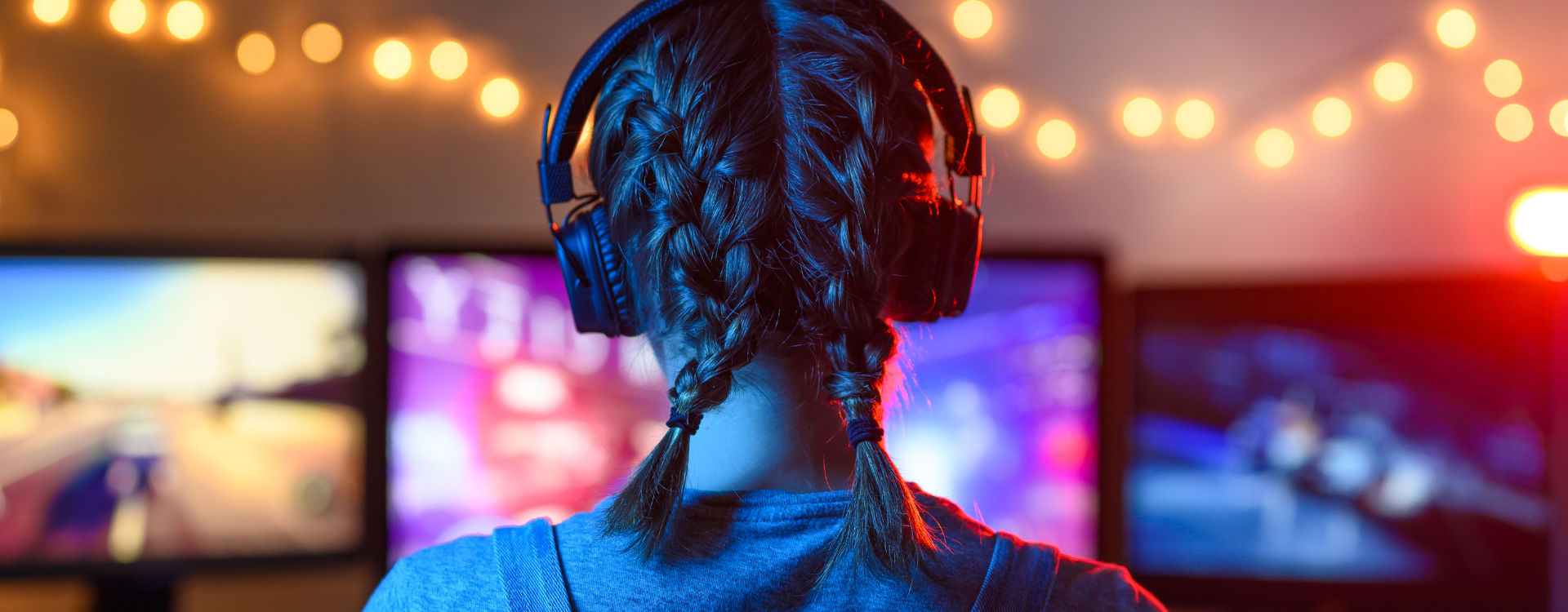Playing mind games
August 22, 2024 | By Joshua Farrington
Telekinesis — the power to move things with your mind — is a popular subject for pop culture, whether it’s Roald Dahl’s Matilda freaking out her evil principal or Victoria Neuman from “The Boys” exploding her enemies’ heads in a shower of gore. While technology hasn’t yet found a way to replicate the power in the physical world, the concept may be coming ever closer in the virtual one.
Perri Karyal, a psychology graduate and keen gamer, first used a TENS, or transcutaneous electrical nerve stimulation, unit to track her heart rate while playing horror games. Intrigued, she soon moved on to using electroencephalography equipment to record her brain patterns so she could observe how she subconsciously responded to stressful stimuli.
But the experience encouraged her enough to try and reverse the process. If she could generate a particular brain pattern, why couldn’t that be coded to be read as an input for a controller?
Controlling a virtual character isn’t as simple as just imagining which direction you want them to move. To provide different inputs while trying to play the game “Elden Ring,” she had to generate different brain patterns, which meant thinking of wildly disparate things. “To sprint, I imagine pushing a cube,” Karyal told The Guardian earlier this month. “To dodge, I imagine spinning a plate to ‘You Spin Me Round (Like a Record)’ by Dead or Alive because I needed something very different from pushing a cube.”
Developing other successful movements took months of effort, until she settled on imagining a cricket hopping in her ear to make her character attack, while focusing on the sensation of being hot, angry and upset to let her character heal.
Karyal has used this method, combined with eye-tracking technology and voice activation, to beat multiple bosses from the notoriously challenging ”Elden Ring,” providing a proof of concept for truly hands-free gaming. And while no one in the real world has mastered exploding their enemies with their mind, for Karyal, doing it in the digital world could be child’s play.
Leveling the playing field
While most gamers are still comfortable using their fingers and thumbs to beat their high scores, there’s plenty of gamers with a range of physical disabilities who need a more diverse set of ways to interact with the hobby.
Accessibility in gaming has become an increasingly important topic in the industry, and many are seeing a culture shift as inclusivity becomes a priority for companies. Even simple changes, such as being able to increase the size of on-screen text or choose different color palettes, can make a huge difference to gamers with vision loss.
Jamie Bankhead, CEO of Konglomerate Games in Dundee, Scotland, told the BBC that increasingly, accessibility is “not a nice-to-have, but a must-have.” Bankhead, who has previously developed a game designed to help children with cystic fibrosis engage with their physiotherapy, says, “People are starting to actively refuse to play games that don’t have the bare minimum.”
While games themselves continue to develop, ways of playing them are also adapting. While full mind-control remains a futuristic aspiration, companies are actively launching new control systems. Earlier this year, Microsoft unveiled the Proteus Controller, developed by Irish electronics firm ByoWave. The modular controller for Xbox, which will retail for about $299, allows the user to rearrange and reconfigure a set of individual ball-shaped units that feature a range of inputs to create a unique controller that would be more comfortable to them to use.
According to ByoWave, the controller is designed for one-handed gamers, gamers with chronic pain or for those who find the layout of standard controllers problematic or cannot hold a controller.
Accessibility isn’t just an issue for casual gamers. The esports industry is also having to adapt to a new generation of competitive disabled gamers, as explored in the new documentary film “Quad Gods,” released on Max last month. The film, directed by Jess Jacklin, follows the first all-quadriplegic epsorts team as its members navigate their lives and high-level competition.
The group has already proved that their disabilities aren’t a barrier to gaming success or enjoyment — whether you’re playing in your bedroom or in a stadium, technology can help everyone join in the game.
